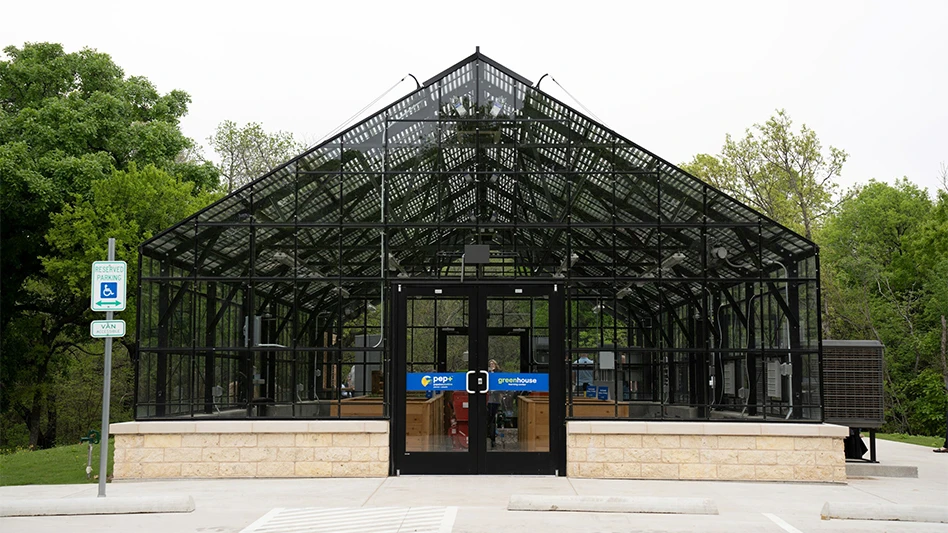
Photo courtesy of Frito-Lay North America
Both under the umbrella of PepsiCo Inc., Frito-Lay North America, Purchase, New York, and The Quaker Oats Co., Chicago, have opened the Greenhouse Learning Center at Frito-Lay’s research and development (R&D) headquarters in Plano, Texas. The facility will be used to field test, measure and analyze compostable packaging with an aim to speed up the rate of innovation.
Frito-Lay says the facility represents a key milestone to achieve their PepsiCo Positive packaging goal to design 100 percent of packaging to be recyclable, compostable, biodegradable or reusable by 2025.
“Our sustainable packaging vision is to build a world where packaging need never becomes waste,” says Denise Lefebvre, senior vice president of R&D for PepsiCo. “We’re actively changing our own compostable snack packaging technologies. By sharing these technologies, we’re inviting the industry to make these changes as well. We are prioritizing, investing in and expediting projects to build a more circular, inclusive economy.”
The R&D packaging team will use the Greenhouse Learning Center to test the biodegradation properties of compostable packages in different environments to accelerate learnings, validate lab results through simultaneous, real-time experiments as packaging formulations are improved and iterate packaging solutions quicker.
According to Frito-Lay, the facility is intended to enable packaging products to move from testing to certification-ready at least two to three times faster in an effort to drive the business and industry forward. The facility, PepsiCo’s first, is located next to and complements the existing prototyping lab where compostable packaging is created. It also aims to change industry standards by educating partners and stakeholders on the benefits of transitioning to compostable packaging, demonstrate circularity with biodegradable materials and provide training to co-ops and visitors.
The R&D team at Frito-Lay and Quaker has been conducting research and forming strategic partnerships for years to improve the packaging process. After releasing 100 percent commercially compostable chip bags in 2010, Frito-Lay and Quaker say they have continued to make progress in evolving compostable packaging.
“We look forward to leveraging key findings from the Greenhouse Learning Center, alongside our scale, reach and expertise across North America and globally, to drive progress across our organization and the entire industry,” says David Allen, chief sustainability officer for Frito-Lay and Quaker. “We must work together to inspire positive change for the planet and people, and Frito-Lay and Quaker are proud to be leading the way.”
Building on learnings from the launch of Off The Eaten Path’s next-generation, commercially compostable packaging, Frito-Lay introduced other options made from 85 percent renewable plant materials that produce approximately 60 percent lower greenhouse gas emissions than traditional snack bags. Moving forward, the company says it will be focused on home-compostable packaging and packaging that is biodegradable, with research conducted at the Greenhouse playing a key role.
Latest from Recycling Today
- Vermeer announces plan to build new facility in Des Moines metro area
- PureCycle, Toppan partner on packaging containing PCR
- LKQ to focus on simplification, productivity in uncertain demand environment
- Supreme Court strikes down IEEPA tariffs
- Redwood expands San Francisco R&D footprint
- Constellium posts record Q4 adjusted EBITDA
- QCC torches include customizable features
- Umicore finishes 2025 with increased earnings





